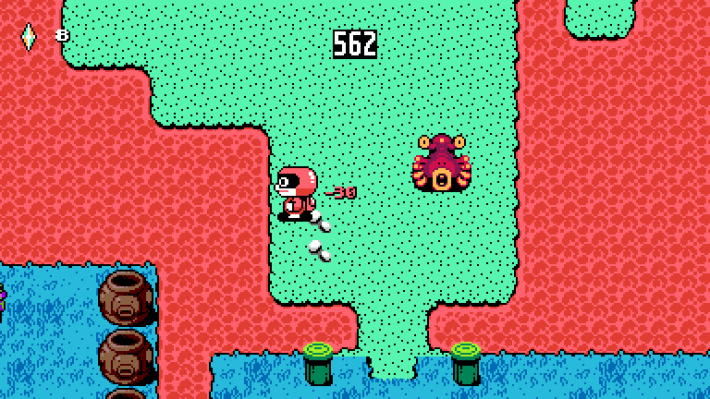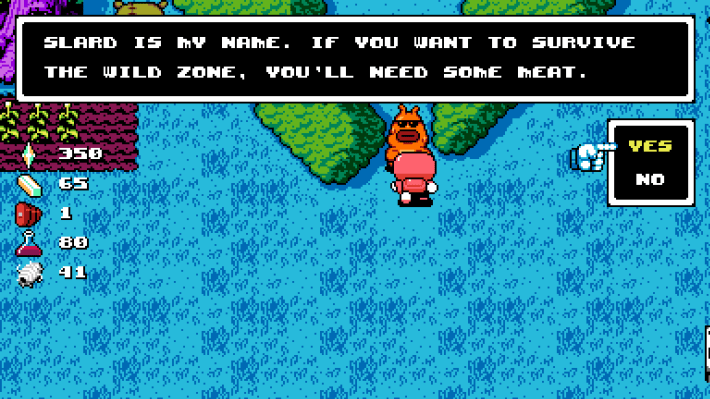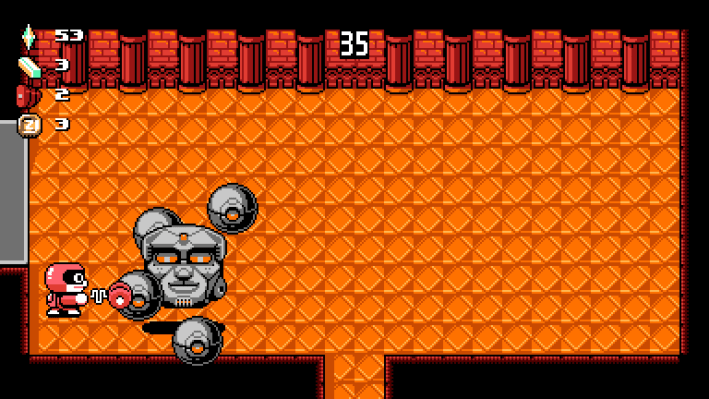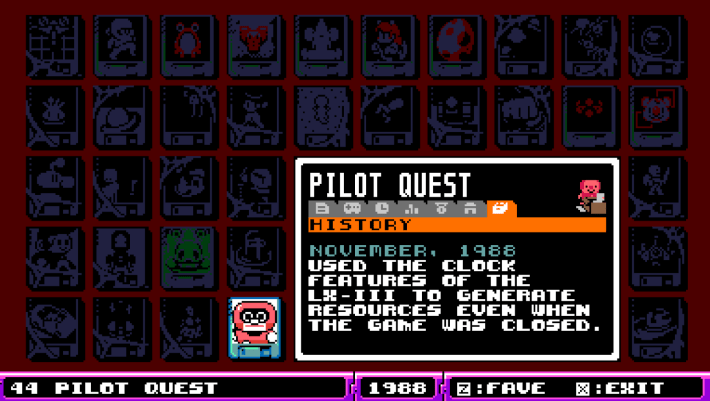When I started playing UFO 50, a game collection of 50 games meant to simulate a lost 8-bit game library, I felt I vaguely knew what I was in for. I assumed, wrongly, that it would simply be a series of retro throwback games that slowly unveiled themselves, that I would get addicted to a handful of them and call it a day. I did not reckon with game #44: Pilot Quest Return to Zoldath, which is brilliant and now consumes my every waking hour.

UFO 50’s fictional games are presented in chronological order, and Pilot Quest is far down the timeline. Having played the first six games, I decided to have my dessert first and picked it at random. In it, you play a little spaceman who has crash landed his ship on a planet and must repair his ship. You awaken in the middle of an alien town equipped with a yo-yo. In the middle of the town is a moon crystal that you can hit for moon shards. Moon shards are the game’s first level currency. Get enough shards and you can buy seeds from the Gumma Tree. Those seeds will ambiently produce shards in the background, turning the game into a Cookie Clicker-style game. In addition to this, you exchange shards for meat that slowly accumulates at the hunter’s lodge. Those slabs of meat can be given to the guard at the exit of town, who will let you out into the The Wild Zone, and that’s where the game gets interesting.

When I saw that Pilot Quest was an incremental game I was initially annoyed, because many of those games are simply skinner boxes that infinitely dose out rewards with seemingly no end or point. But the overworld element to Pilot Quest is implemented brilliantly. Each slab of meat adds to the time that you can spend outside, but it also acts as your health. If you want to take anything back to the town, you need to make it back alive. Take a few hits and you may run out of time. This means that the more time you risk out in the The Wild Zone, the more you gamble. As you get the parts of your ship back, you start to gain not just shards but also resources like ingots or science that can be harvested by fixing buildings in your town for your friends to live in and work on. In effect it is Farmville mixed with a meta town builder like ActRaiser or Soul Blazer mixed with Zelda.

What makes this game truly brilliant within the context of the collection is that, in the lore of UFO 50, Pilot Quest was the first game on the console to utilize the clock feature. This means that the game continues to collect resources as long as you are playing UFO 50. Like many incremental games, babysitting it yields diminishing returns. The game’s structure rewards you playing a little bit of it, quitting, playing a different game, and coming back later.

Despite being kind of mad at how addictive Pilot Quest is, it is one of the few incremental games that I respect. What it is doing in its place in the collection makes me want to play the other games more while constantly checking in ambiently between rounds of other games. I’m also glad that I played it early, and I would suggest you do too, because I am gaining more progress in it than if I had played it chronologically. It is a brilliant take on the form
Now if you’ll excuse me, I have some resources to farm.


